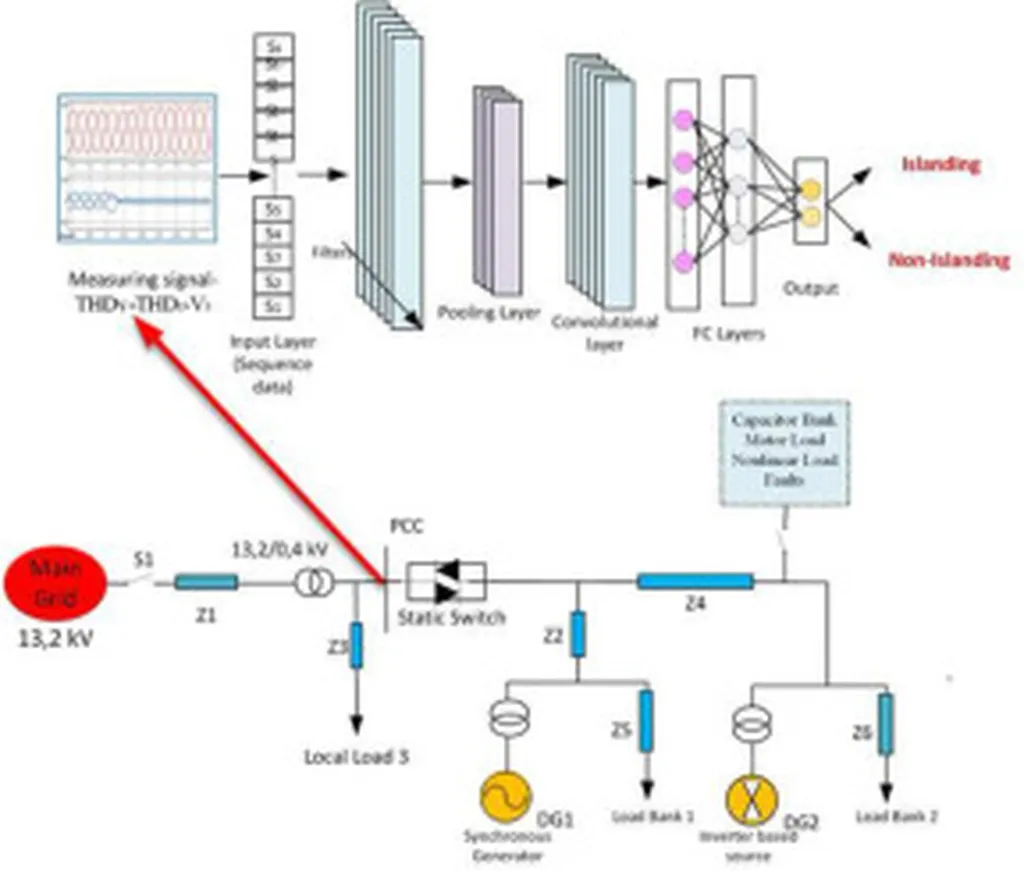In the rapidly evolving landscape of energy systems, ensuring the stability and safety of hybrid power networks is paramount. A recent study published in the journal *Energies* introduces a groundbreaking method for detecting islanding events—sudden disconnections from the main grid—in microgrids, which could revolutionize how we monitor and protect modern power systems.
Led by Yahya Akıl from the Department of Electric Power and Energy System at Dicle University in Turkey, the research proposes a novel framework using a Robust Random Vector Functional Link Network (RVFLN). This advanced machine learning technique is designed to quickly and accurately identify islanding events under diverse operating conditions, addressing long-standing challenges in detection speed, false alarms, and robustness.
“Traditional methods often struggle with the dynamic nature of microgrids,” Akıl explains. “Our approach leverages engineered features from voltage, current, and power signals to capture both transient and steady-state characteristics, ensuring reliable detection even in complex scenarios.”
The study highlights the integration of three key features: the Dynamic Harmonic Profile (DHP), which tracks rapid harmonic distortions during disconnection; the Sub-band Energy Ratio (SBER), which quantifies the redistribution of signal energy across frequency bands; and the Islanding Anomaly Index (IAI), which measures multivariate deviations in system behavior. These features are processed using RVFLN, a neural network known for its efficiency and accuracy.
To validate the method, the researchers used a real-time digital simulator (RTDS) to model various scenarios, including grid-connected operation, islanding at the Point of Common Coupling (PCC), synchronous converter islanding, and fault events. The results were impressive: the RVFLN achieved up to 98.5% accuracy with an average detection latency of just 0.05 seconds. Compared to conventional classifiers like Random Forest, SVM, and k-NN, the RVFLN demonstrated superior performance across precision, recall, and F1 score.
The implications for the energy sector are significant. As microgrids become more prevalent, ensuring their stability and safety is crucial for maintaining power quality and reliability. The proposed method could be integrated into intelligent protection and monitoring systems, providing real-time detection and enhancing grid resilience.
“This research opens new avenues for improving the robustness and efficiency of islanding detection in hybrid power systems,” Akıl notes. “By leveraging advanced machine learning techniques, we can better manage the complexities of modern energy networks and ensure a more stable and secure power supply.”
As the energy sector continues to evolve, innovations like this one will play a pivotal role in shaping the future of power systems. The study not only advances the field of islanding detection but also underscores the importance of interdisciplinary research in addressing the challenges of tomorrow’s energy landscape.

